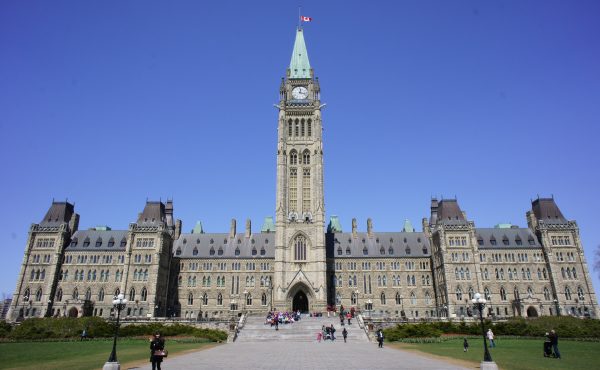This is an Op-Ed piece by Spacing contributor Desmond Cole
![]()
Organizations that advocate for fairness — whether in sports, politics, or education — are rightly expected to walk their talk, to exemplify the principled behaviour they demand from others. When your organization’s name is Fair Vote Canada, the expectations to practice what you preach are understandably pretty high. I fear the group is falling well short of expectations at present.
A year ago, I was volunteering with two groups, both of which are pushing for fairer political elections. Members of Fair Vote Canada, got mad that I also volunteered my time with the Ranked Ballot Initiative of Toronto (RaBIT). So Fair Vote leaders removed me and other members from our elected positions, and barred several other members from seeking office.
Torontonians have been hearing a lot about conflict of interest recently, and learning that a failure on the part of elected officials to avoid it can be disastrous. In my case, Fair Vote drafted a new conflict of interest policy last month, and more or less defined “conflict of interest” as belonging to RaBIT. I was subsequently informed of my “inherent and continued conflict of interest” about two weeks ago, and was immediately and indefinitely turfed.
Fair Vote Canada is a national vote reform organization. It advocates that Canadians adopt fairer systems for our elections. Sadly, the group’s current leadership is making a mockery of Fair Vote’s good name and lofty principles.
There simply aren’t enough people aggressively advocating for electoral reform in this country; among those who do, few are young and almost all are white and male. Of the seven people now indefinitely removed or barred from office in Fair Vote, none are older than forty, and six are women or racialized people. The group that says Canada’s politicians should reflect the country’s diversity has purged diversity from its own elected ranks.
The apparent wrongdoing of those barred is that we volunteered our free time to promote RaBIT, a group pushing reform specifically in Toronto’s municipal elections. Both RaBIT and Fair Vote believe in changing the current system, but advance different remedies. Fair Vote, which focuses on reforming provincial and federal elections, recently held an internal referendum in which 45% of its members said the group should endorse RaBIT. Many believe, as journalist Andrew Coyne recently argued, that either proposed reform is better than our current system.
But Fair Vote’s national leadership feels that any reform other than one, proportional representation, is a threat to its advocacy. I am still a member of Fair Vote, but I can’t hold office because of my former involvement with RaBIT. Since RaBIT has no formal membership, just supporters, Fair Vote leaders are hand-picking current and former volunteers for exclusion. The seven who have been barred or expelled were explicitly named, yet others within Fair Vote who share our feelings face no consequences.
Even some members of Fair Vote’s high-profile advisory board are RaBIT supporters. Outside of the current national executive, it seems there’s plenty of room for cooperation and mutual respect between the two groups.
I cannot tell this story without outlining the role of Dave Meslin, a prominent local activist and dear friend. Meslin has volunteered with Fair Vote for almost ten years, and also founded RaBIT about three years ago. A few Fair Vote leaders are angry with him for starting a local group that advocates for a non-proportional system. They say RaBIT will derail Fair Vote’s goals provincially and federally by advancing a different reform in Toronto, a notion Coyne describes as “madness” in his recent column (it’s also worth noting that Fair Vote USA includes advocates of both reforms in one united movement).
Meslin’s name appears first on the motion to bar or remove members from office, and the desire to sanction him has extended to those who have worked with him on RaBIT.
This is a great shame, mostly because of the amount of time and energy Meslin has devoted to electoral reform. Among other things, he went to live in British Columbia for a month in 2007 to campaign for proportional representation in a provincial referendum. It’s hard to believe that Fair Vote’s leaders are willing to forgo this kind of voluntary commitment over a difference in voting systems. I doubt national council’s actions represent the will of most members, who were not consulted on decisions to nullify member votes and essentially segregate the membership.
Fair Vote Canada needs to live up to its name, and honour its status as a chapter-based, member-driven, registered non-profit organization. My volunteerism outside the group should not be grounds for barring me from office. None of the members deemed in conflict were given a chance to correct their alleged violation before being barred. The motion to remove us empowers the remaining members of the Toronto executive to police future chapter nominations for perceived outsiders. This isn’t my idea of fairness. Any member of Fair Vote should be allowed to seek office.
There’s a classic Monty Python gag about the predicament my barred colleagues and I find ourselves in. People united in fighting the status quo often cannot resist the temptation to turn on each other. It’s been a tough go for electoral reform in Canada, as four provincial referendums on changing to proportional systems have all failed. I doubt the disenfranchisement of Fair Vote’s youngest officers and the imposition of membership tiers will help the movement. These actions will more likely discredit Fair Vote Canada’s own calls for fairer electoral processes. We shouldn’t let that happen.
Desmond Cole was elected to the Toronto executive of Fair Vote Canada in April 2012. He is the former project coordinator of I Vote Toronto, a campaign to extend Toronto’s municipal vote to permanent residents.





20 comments
For those seeking a balanced perspective, consider taking a look at my article here:
http://stuartparker.ca/update-on-the-canadian-voting-reform-meltdown/
So FVC doesn’t like people who have a different opinion and “blocks” those people?
Isn’t that what YOU and Dave do? Anyone that disagreed with Dave Meslin has been blocked on facebook/twitter/other social media. Anyone that challenges him (which is part of a democratic society) will get banned.
Desmond Cole obviously has an axe to grid with this Fair Vote group. What a rant! Why Spacing magazine would bother giving him space to air his grievances about an internal disagreement within the electoral reform movement is beyond me, and frankly, who cares about people fighting over one system and another? It looks like Desmond Cole and David Meslin have their own organization to promote their pet voting system reform, so they should probably take their ball and go home. Nothing is more boring than people who won’t let go of a new political party idea or favorite voting system scheme, even amongst people who aren’t fans and who have better things to do.
Wow. Fair Vote Canada sure sound like a bunch of toddlers.
Very interesting take.
I’ve always been an advocate of voting reform at all levels of government and I support both of these initiatives. I think proportional representation at the provincial and federal levels seems like the most fair way to elect MPs and MPPs/MLAs.
At city hall, where in Ontario there are no political parties, I think Ranked Ballots is the best option. It achieves the same things as prop-rep since city councils work in different ways than parliaments.
It’s a shame neither group can work together on this (I did read the link from Stu, the commenter above; it’s certainly not more “balanced” than this piece — it’s an attack on Mr Meslin and is written poorly/childishly).
Lastly, to the commenter above (Roy): I’m interested in seeing how the internal mechanics work of these organizations since they represent things I care about. Kudos to Spacing for bringing this to its readers attention.
Thanks to Desmond for writing this article. I have always been aware of Fair Vote and the importance of PR, but actually got motivated to be involved in actually doing something about voter reform through RaBIT, which I have recently joined.
I have found a lot of the push-back from the hardcore Fair Voters really off-putting. A quick glance at the ridiculous ‘Mez will ban you comment’ above illustrates a willingness to degrade the debate to unsubstantiated allegations and name-calling. In ten years of various organizing things in Toronto I have found Dave to be one of the most inclusive and open-to-being-challenged kinda guys I know.
Frankly, there is a lot of young and diverse energy building around RaBIT – the kind almost any advocacy organization would kill to have. That this is being forcibly excluded from Fair Vote won’t kill the voter reform movement, it will just make Fair Vote a whole lot less relevant. I hope they rethink this over-the-top position and let everyone advocate for a better democratic under the same big tent.
It’s an excellent and important point that with this action against the Toronto executive, Fair Vote is reducing fair representation of its diverse membership. Not just of younger and/or racialized members but of the 45% who presumably disagree with Fair Vote’s uncompromising stance on how to advocate for electoral reform. Even if you could call 55% support for the status quo a huge show of support, it’s unlikely that they were tacitly supporting the expulsion of anyone who didn’t share the exact mindset.
Hugely disappointing and troubling for anyone trying their best to support an organization that’s done so much important work for the cause of PR.
Mr. Cole writes that ” Fair Vote Canada is a national vote reform organization. It advocates that Canadians adopt fairer systems for our elections. Sadly, the group’s current leadership is making a mockery of Fair Vote’s good name and lofty principles.”
What Cole fails to point out is that FVC is interested in promoting a proportional system, one that would bring more Canadian voices to the table. FPTP does not do that ,nor- in FVCanada’s opinion- would the Ranked Ballot Initiative. The question here, as Roy notes, is why doesn’t the RaBIT group simply pursue what they believe to be an electoral improvement and let FVC freely pursue what it believes- rightly, I think- will make for a better electoral voting system- at all levels of government, including the municipal one?
Dave Meslin resigned from the TO chapter in 2009 saying that:
“If this is truly the position of FVC, then I don’t see myself fitting into the organisation, and that’s totally ok with me. …….I’d like to resign from the executive, with no hard feelings whatsoever. You’re all a great bunch of people, but I don’t think we share the same goals.…….Please consider this an official letter of resignation. “
Fast forward to 2012. Being a democratic organization, D. Meslin got elected to the Toronto executive again. But we still don’t share the same goals. Logically, he should have resigned again. Accepting others point of view is only considerate. We accept RaBIT’s right to advocate for what they want and they should accept Fair Vote’s. It’s the democratic thing to do.
This is the TO chapter’s statement:
http://www.fairvotetoronto.ca/FVT_March9_2013.html
This statement in Stuart Parker’s post jumps out at me: “RaBIT is an organization that campaigns against proportional representation in the City of Toronto.” If this is true, campaigning for anything other than “all PR, all the time,” is cheating on FairVote, and if I want to do that I can take my weaselly, waters-muddying support elsewhere.
I have been a Fair Vote supporter for a few years and a member for a few months, and I’m also a newish supporter of RaBIT. I connected with both organizations because it’s so glaringly obvious our current systems need an overhaul.
I’m no poli-sci whiz, so I still need to be convinced about what type of reform will work in a particular forum and how it can best increase participation, engagement and substantive representation there. In terms of where my support goes, regardless of who said/did/excluded/schemed what within organizations, smart customization appeals to me far more than big-picture consistency. And I’d take a achievable good reforms over possible perfect ones. On that basis I hope FairVote will emerge from this debate as a pro-reform organization rather than strictly a pro-PR one.
Geoff, why must your proposal be mutually exclusive? Members of the Fair Vote advisory and 45% of the general membership support both measures. Why should we divide ourselves? Fair Vote USA doesn’t.
And to Stuart Parker, who claims myself and other members were expelled, “after a month of repeated, insistent defiance,” of the conflict of interest policy: have you even read the motion to expel us? It says we violated the policy through our endorsement of RaBIT, and cites no actions we took within Fair Vote to be expelled. That’s the problem.
I’m not sure Fair Vote has really thought this through. If 1% of a group holds a certain unpopular opinion, you can safely purge them – get out, we hate you, scram. The 99% of the group will go on and it won’t be seriously harmed by the loss. In this case 45% of Fair Vote’s members think that it’s stupid to try to advocate for party-based proportional systems in places like Toronto, which have no municipal parties and no reasonable prospect of such a change ever occurring. And yet the (slight) majority thinks that it’s a good idea to purge and alienate that 45% of the membership, instead of trying to work with them. Fair Vote is going to find itself seriously crippled after this purge, and its leaders will have only themselves to blame.
Or to put it another way: Fair Vote Canada in its entire history has never achieved anything, anywhere in Canada. Nothing. Not one legislative change of any sort. The one possibility of a victory on the horizon is…… Dave Meslin and RABIT in Toronto. And instead of working for that victory, claiming it and building on it, they’re trying to stop it from happening. {facepalm}
I was very pleased last summer to discover the the work of Fair Vote Canada and it’s promotion of proportional representation. I signed up on the spot. This seemed to me to be the critical change needed for balanced representation in provincial and federal parliament.
At the municipal level however the picture was not so clear.
In the absence of political parties PR can be seen as problematic. Even if PR were a perfect fit it seemed to me a very hard sell for municipal elections. That’s where Ranked Ballot Initiative of Toronto came in. It made perfect sense to me and I signed up on the spot.
It is my opinion that a ranked ballot would make a significant improvement in the electoral health and vitality of any Canadian city – especially Toronto. But PR and Ranked ballots are two different animals. Not a problem in my mind. In fact, I believed the successful adoption of the ranked ballot in Toronto would have an enormously beneficial impact on the work of Fair Vote Canada to promote electoral reform at the provincial and federal level. In simple terms, change promotes change. I don’t know to whom to attribute the following saying but it seemed entirely appropriate here … “incremental improvement over planned perfection”
I had arrived – it turned out – at a decisive moment. Could these two animals – that looked so different yet shared so much DNA – thrive together? I honestly couldn’t see why not. Perhaps the referendum would clear the air. A ten percent margin can’t be ignored but, what followed can’t be fathomed. Fair Vote Canada you can keep my donation but you’ve lost my support.
I will continue to promote RaBIT. I will continue to look forward to the day when the PR cause is represented with clarity and harmony.
Wow, what a mess. There seems to be a lot of “he said she said” tangled in here, so judging what’s a “balanced perspective” seems futile (for me at least). What I can say is that in the 2 or 3 years of being a Fair Vote member, I’ve never seen anything about PR for municipal elections. What I have seen is lots of energy and momentum for RaBIT, so as a previous poster notes, it currently has the best chance of changing the status quo for the City of Toronto.
I must admit to being a bit conflicted about these recent developments. Not so much in terms of allegiance, but in terms of how this squabble could help or hinder each group’s goals. (It’s worth noting I am a RaBIT supporter, but am not a member of Fair Vote.)
For Desmond, Dave and others, I can empathize with the injustice afoot here and the need to speak out on it. It’s demoralizing to be tossed aside after a lengthy and proven commitment. But I can’t help but wonder if this unintentionally positions RaBIT as the anti-Fair Vote to people not yet acquainted with either camp. I say this because my introduction to Fair Vote came via an anti-RaBIT leaflet they were handing out at the recent YIMBY festival. Regardless of all the good work they’ve done in promoting proportional representation, when I think of how they represent themselves, that crotchety leaflet is first and foremost on my mind.
This is a inside baseball story about FVC, but the RaBIT logo is the first thing you’re presented with. Maybe that’s the bit I find unsettling. Regardless, and like Janesse said above, lofty goals are great, but achievable ones are even better. I was drawn to RaBIT because it makes clear sense to almost everyone, and I’m confident instant run-off ballots will be in Toronto’s near future. I hope this is only a slight diversion on what is certainly an attainable target.
What I find odd about this dispute is the position the core RaBIT activists are arguing from. Note how carefully the word “supporters” are used – the group does not allow membership. “Supporters” are not notified of executive meetings, nor do they have any right to vote for directors. This sort of dispute is impossible within RaBIT, because RaBIT is not a democracy at all.
I find it incredible that activists for reforming democracy can overlook that for 5 minutes, let alone 3 years.
Bruce, thanks you very much for your most instructive comment. After so much digital ink on the issue before, it really cuts to the nub of the conflict as I see it.
I find it strange that a fine publication such as Spacing would run a piece that so clearly presents the perspective of the democracy organization in this fight that, as you so correctly put it, “is not a democracy at all”. I look forward to Spacing offering the other side equal space and similar placement on your front page.
Full disclosure: while not currently a Fair Vote Canada officer of any sort, I am a long time proportional representation advocate and activist and monthly donor to Fair Vote Canada for most of its existence.
This has been a very useful discussion. Both groups are working toward clearing the alienation caused by the logjam in today’s voting system. Both groups offer options that should restore voter confidence and increase voter participation and turnout at every level of government. Squabbles such as we see here serve to underscore the importance of working together when the goals, if not the means, are congruent.
This conflict seems to be pretty emotional, as these types of squabbles tend to be. Many comments from both sides. Setting the spin aside I didn’t read anywhere how anyone in the 45% minority is actually getting “purged,” but merely that the FairVote group is disallowing the leaders of the Rabit organization from being leaders in FairVote. They seem to still be members and can vote, etc., but if the two organizations really have competing goals it isn’t an unreasonable thing to ask that one side doesn’t take over the leaership of the other.
It’s probably time for the two organizations to wish each other well and move on with their respective campaigns. And for Spacing to reconsider running columns that are just thinly-veiled rants from one side or other in obscure internal disputes.
What charge could be more damaging to the reputations of citizens who live and work in the multicultural city of Toronto than being accused of racism? While Mr. Cole does not overtly call Fair Vote Canada racist and sexist, he implies that FVC office holders engaged in a “purge” of women and racialized people. This damaging allegation cannot be allowed to stand! The people who were asked to leave executive positions in FVC were found to be in conflict of interest because they support an organization whose mandate runs directly counter to the mandate of Fair Vote Canada. Those persons may have been old or young, pink or purple, tall or short, fat or thin. What was at issue was their conflicting affiliations, not their colour or gender. To conflate these unassociated properties is irresponsible in the extreme. In addition, it is simply not true that “almost all” members of FVC are white and male. I joined the organization to increase the representation of women in politics, and FVC has a Women’s Caucus, of which I am a member. FVC has many members from racialized groups and, in fact, the electoral reform FVC advocates, proportional representation, has a historical record of increasing the representation of such groups.
Joyce Hall, white, female, 63 years old, (since it matters to Mr. Cole) and Professor, Seneca College (where my reputation as non-racist and non-sexist is a necessary precondition of my employment)